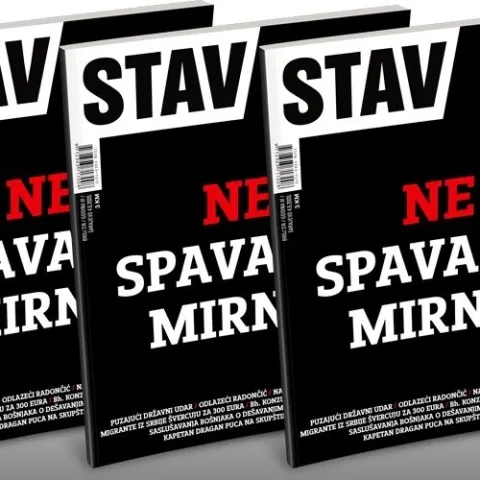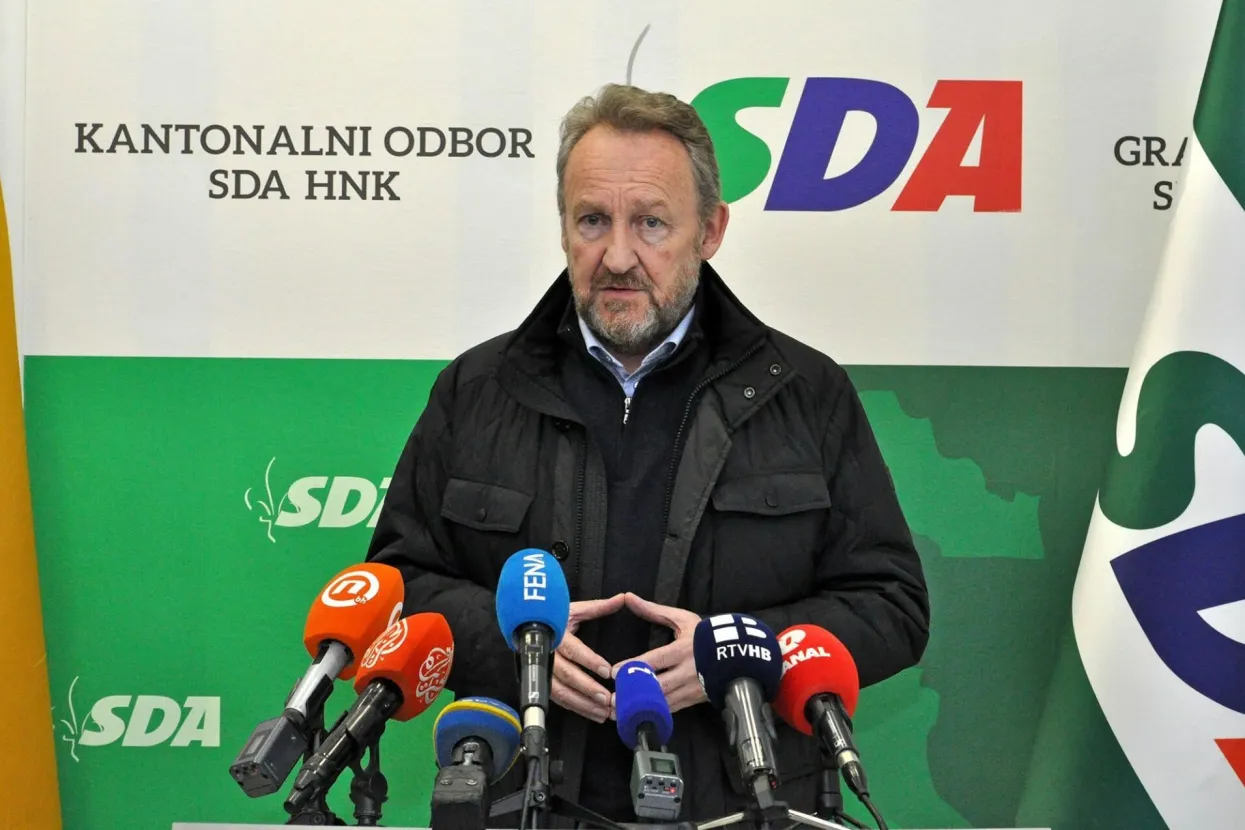

MOSTAR, 11. siječnja (FENA) – Predsjednik Stranke demokratske akcije, Bakir Izetbegović dao je izjave za medije u prostorijama SDA u Mostaru.
(Foto FENA/Emanuel Soca)
The BiH future depends on Croat-Bosniak relations: Does Sarajevo want to „Palestinize“ its own people?
The BiH future depends primarily on the stabilization and harmonization of Croat-Bosniak relations, and not on Serb separatist aspirations, as is often misrepresented in Bosniak and some foreign media.
The language used by Milorad Dodik, the leader of BiH Serbs, but also the moves of the RS National Assembly related to the transfer of competencies from the BiH state to the RS entity, are easily used by the media to paint a „black and white“ picture in BiH, in which one side is good and the other evil. On the other hand, the third side is easily being related to one of the two previously mentioned, especially in a negative context.
This is how it is falsely portrayed that Bosniak elites supposedly defend the BiH state, while Serb elites are dissolving it. Croat elites are presented as a secondary factor that helps Serbian elites to disintegrate the BiH state.
The truth is, of course, completely different and more complex. But the media likes simplifications and describing political processes according to the „good guys and bad guys“ matrix.
Serb separatism is a consequence of the chronic BiH dysfunction, which stems from the violent changes of the Dayton Peace Agreement, the BiH Constitution and the Election Law by the international factor, which has always done all these interventions in favor of Bosniaks and their unitarian policy and to the detriment of Serbs and Croats.
The way Bosniaks and international officials treat Croats in the FBiH is a clear sign to Serbs that they need to work harder to strengthen the RS entity, otherwise they will be deconstituted, which is what Croats have been going through for 25 years.
In order to stop the practical BiH disintegration, it is necessary to take certain steps. The first is the stabilization of Croat-Bosniak relations in the FBiH. In order to stabilize these relations, it is necessary to reform the Election Law first, which has been unsuccessfully negotiated under international mediation for weeks.
Bosniak politics and its public refuse to even think of agreeing to allow the Croat people in BiH to elect their political representatives on their own to government bodies intended for national representation, such as the houses of peoples and the BiH Presidency. They believe that by depriving Croats of their political rights, they are strengthening their own chances of gaining control of the BiH Federation entity and later the entire territory of Bosnia and Herzegovina. For such aspirations, they had twenty years of Western support, and therefore today they can not imagine giving up the luxury of electing two members of the Presidency, imposing representatives to national minorities and Serbs in the FBiH House of Peoples and at least a third of Croatian envoys in that legislative body.
In addition, they are demanding a reduction in the powers of the FBiH House of Peoples, all in order to find an alibi for the failure of negotiations on the Election Law reform and continue to expel Croats as a factor in the BiH political life.
However, the result of such a process is the total BiH disintegration, which is today an example of a „failed state“, pushing the Republika Srpska towards secession and practically reviving Herzeg-Bosnia as a political, legal and territorial entity within such a failed BiH, in which the Croatian people could decide their own destiny without any imposition.
If the international community once again „approves“ Bosniak politics of imposing political representatives on Croats in the BiH Presidency and houses of peoples, then these will be the last acts of the BiH state.
BiH will simply not be able to survive the final deconstitution of Croats.
Apart from the fact that Serbs will get a valid reason for the definitive secession, it is clear that Croats will not watch with folded arms as they are turned into subjects without any rights that political Sarajevo rules at its own discretion, following the notorious Ottoman bey paradigm.
At its last session, the Croatian National Assembly made it clear that it believes there are no conditions for conducting elections until the rulings that concern the Election Law are implemented. If the elections are held by force, they will not oblige Croats to respect their results, but they will be forced to build their own territorial and political unit on which they will be able to establish their own government institutions and consume their political rights.
The end result of this process will be the de facto BiH disintegration (perhaps not immediately de iure) where Bosniaks will remain closed and in hostile relations with their Serb and Croat neighbors. What Bosniak politics fears, at least declaratively, will happen - the „Palestinianization of Bosniaks“.
To prevent this, because it is in nobody's interest, Bosniak politics should first stabilize relations with Croats in the FBiH, then the FBiH entity should stabilize relations with the Serb factor in the RS. A stable and strong Croat-Bosniak federation in the FBiH entity is the guarantor of BiH's stability and territorial integrity.
The first step in the whole process is the Election Law reform in such a way that one people can not impose political representatives on another.
However, the chances of something like this happening are really minimal. At the moment, almost no one sees a way for Sarajevo to give up its policy, which in practice leads to the destruction of BiH state.
Only strong pressure from those who turned Bosniak politics into hegemons can change anything. Only the U.S. has enough strength to dispel Bosniak dreams of „Bosnia“ as a national Bosniak state in which Croats and Serbs have the status they had in the Ottoman Empire.
Otherwise, let us say goodbye to today's Bosnia and Herzegovina and prepare for new states in the immediate neighborhood.
Dnevnik.ba